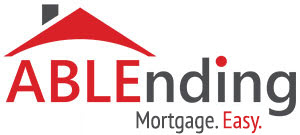Home Loans – A Basic Introduction
The most popular method of financing a home purchase is with a mortgage. This is a loan that is secured over the home. There are a number of different suppliers and you will have to shop around in order to get the best deal. Given that your home is probably the single biggest purchase you will make in your lifetime, you must make sure to take the care and attention that the transaction merits. Mortgage rates can vary greatly from lender to lender and the amount your rate is set at can make a huge difference to the amount your repayments will amount to. Even small difference in rates could save you thousands of dollars or allow you to have your home paid off years sooner. So do your homework.
Fixed or Variable
When looking for the best loan, there are certain terms you will need to be familiar with. For example, mortgages generally come as either a fixed rate mortgage or a variable rate mortgage. The fixed rate loan will keep the same interest rate and monthly repayment for the whole lifetime or term of the loan. This will generally be for a period of 10, 15, 20 or 30 years. If the rate is fixed for a period, such as the first 2 or perhaps 5 years, and then reverts to a variable rate it is known as an adjustable rate mortgage or ARM.
When the ARM rate becomes adjustable, it will move up or down periodically according to a specified market index. These can include the Prime Rate, the LIBOR or the Treasury Index among others.
With the adjustable rate, some of the risk of changing interest rates that would otherwise fall on the bank is transferred to the borrower. They are therefore cheaper averaging somewhere between 0.5% to 0.2% lower than a 30-year fixed rate mortgage. If the rate is particularly volatile or difficult to predict than a fixed rate mortgage may not even be possible.
In the majority of cases, the savings of an ARM outweigh the risks of a rising interest rate. Especially where the mortgage is for ten years or less.
Fees
Lenders may charge various fees when giving a home loan or mortgage. These include entry fees; exit fees, administration fees and lenders mortgage insurance. There are also settlement fees (closing costs) the settlement company will charge. In addition, if a third party handles the loan, it may charge other fees as well.
Banks usually charge a valuation fee, which pays for a surveyor to visit the property and ensure it is worth enough to cover the mortgage amount. This is not a full survey so it may not identify all the defects that a house buyer needs to know about. Also, it does not usually form a contract between the surveyor and the buyer, so the buyer has no right to sue if the survey fails to detect a major problem. For an extra fee, the surveyor can usually carry out a building survey or a (cheaper) “homebuyers survey” at the same time.

Leave A Comment